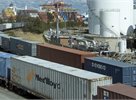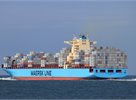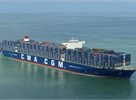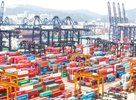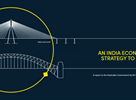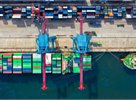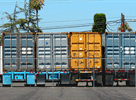
IMO 2020 - A Breath of Fresh Air?
Regardless of how one views the worldwide debate surrounding the impact of mankind on climate change - and let’s face it, opinions vary widely - probably all would agree that a cleaner environment is clearly better for everyone.
Strong public sentiment the world over is causing governments to respond by implementing climate change policies that pressure industry to be more sustainable. Climate change activists, not happy with the pace of reform are resorting to civil disobedience and protest action in major cities throughout the world, including peak-hour disruption in Australian CBDs recently.
Meanwhile, the shipping industry is quietly but resolutely steaming peacefully towards IMO 2020.
What is IMO 2020?
The International Maritime Organisation (IMO) has ruled that from 1 January 2020, marine sector emissions in international waters be slashed. The marine sector will have to reduce sulphur emissions by around 85% primarily by switching to low-sulphur fuels.
How Bad is Shipping For the Environment?
Apart from rail freight, shipping is the most efficient mode of transport in the world. In terms of grams per person/tone kilometre shipping represents only 15% of the greenhouse gas emissions of commercial aviation and 22% of passenger car emissions.
How Bad is Shipping for the Environment?
Apart from rail freight, shipping is the most efficient mode of transport in the world. In terms of grams per person/tonne kilometre shipping represents only 15% of the greenhouse gas emissions of commercial aviation and 22% of passenger car emissions.
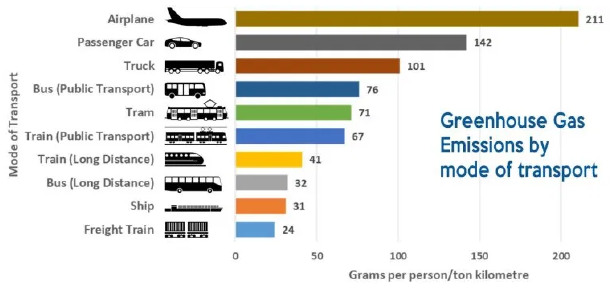
The size of the shipping industry however is significant. It is estimated that shipping worldwide consumes 3.9 million barrels of oil daily so the coming improvements will have a very positive effect in minimising pollution.
How Will it Be Achieved?
Carriers will have three options and most will utilise more than one.
1. Using new ‘compliant’ fuel oil to bunker their ships. The new fuel will have a sulphur content not exceeding 0.5% (down from 3.5% currently). The availability of compliant fuel will vary from port to port which is a major consideration to carriers.
2. Installing ‘scrubbers’ in their ships’ systems whereby exhaust gases are effectively cleaned (or scrubbed) prior to being released into the atmosphere.
3. Using alternate fuels such as LNG or methanol which some carriers are trialing already (maybe a new ‘Tesla’ electric ship is not too far over the horizon).
There are many factors to determining which methods carriers will use including the cost and availability of alternate fuels, size of vessels, length of routes, infrastructure and capital costs. Time will tell which prove the most popular.
What Will it Cost and Who Will Pay?
Calculating the cost of the new fuel for the short term is still a work in progress for the carriers as multiple types of fuel will be blended and each will be priced differently. It is understood that refiners can deliver roughly 60% of the compliant fuel in the form of heavy fuel oil and the remainder as marine gas oil.
Estimates suggest that roughly 2000 ships will be actively using ‘scrubbers’ on 01 January 2020. Further ships are awaiting retrofitting. This involves major capital expenditure.
Overall cost estimates are varying from carrier to carrier depending how they intend to meet the new demands. But the estimated increase for the entire shipping industry worldwide is USD 60 billion annually.
Naturally carriers are considering ways to recover the costs. Ultimately consumers will pay and the consensus seems to be the levying of a new surcharge which will variously be labelled as Low Sulphur Fuel Recovery (LSR) or Environmental Fuel Fee (EFF).
Depending on the trade and carrier, some are estimating a cost to shippers of anywhere between USD 50 and USD 400 per twenty foot equivalent unit (TEU).
Shipping company rates as at 01/12/2019
So does IMO 2020 represent a breath of fresh air? Indeed it does, but it won’t come without a noticeable hit to the hip pockets of shippers and consumers.
For further information or details, feel free to contact your local ITM account manager.
Related Link: http://www.imo.org/en/mediacentre/hottopics/pages/sulphur-2020.aspx

Tim Packham
Brisbane State Manager
-
Australian Governments Modern Manufacturing Strategy
-
Boxship owners see 13-year high in charter rates as carriers hunt for tonnage
-
DP World and UNICEF to support COVID-19 vaccine distribution
-
Buoyant ocean carriers set to roll out peak season surcharges months early
-
Trade protectionism a barrier to the recovery of global economies, warns ICS
-
Outlook for large widebody looks chilly in a hot freighter conversion market
-
EVEN AS THE WORLD STRUGGLES
-
Maersk to launch carbon neutral vessel
-
STATE PREMIERS URGED TO INTERVENE ON CROSS-BORDER ISSUES
-
PORT BOTANY RAIL DUPLICATION FAST TRACKED
-
Covid vaccine: is air cargo ready for 'the biggest product launch in history?
-
Logistics protests as Melbourne lockdown puts the brakes on supply chains
-
Demand driving transpacific prices sky high, with Asia-Europe benefiting too
-
Carriers follow through with capacity disicpline and blank more sailings
-
Indonesian Free Trade Agreement - economic opportunity opens up
-
Department of Agriculture turns away import vessel
-
Good Compliance Update - December 2019
-
Scale-less weighing of containers for SOLAS VGM
-
Patrick East Swanson Terminal Melbourne - Reductions in night shift road R&D operations
-
Shippers brace for delays as coronavirus keeps China's factories closed
-
Coronavirus containment measures and the impact on your China cargo.
-
2019/2020 Stink bug seasonal requirements
-
BAF calculator may help ease uncertainty over looming IMO 2020 fuel rule
-
From 15 to 5 in just a few years - shippers' declining choice of container carriers
-
Government money to boost Queensland export
-
Freight forwarding scam warning
-
Marine insurance case study
-
Australian Ports infrastructure not keeping up with global trends
-
Truckies heartened by support to stopping port surcharges
-
Victorian Transport Association (VTA) State Conference 2019 - Making the case for inland rail
-
Protection from tariffs a feature of Australia and Hong Kong deal.
-
BMSB UPDATE 45 - WA Biosecurity Alert












